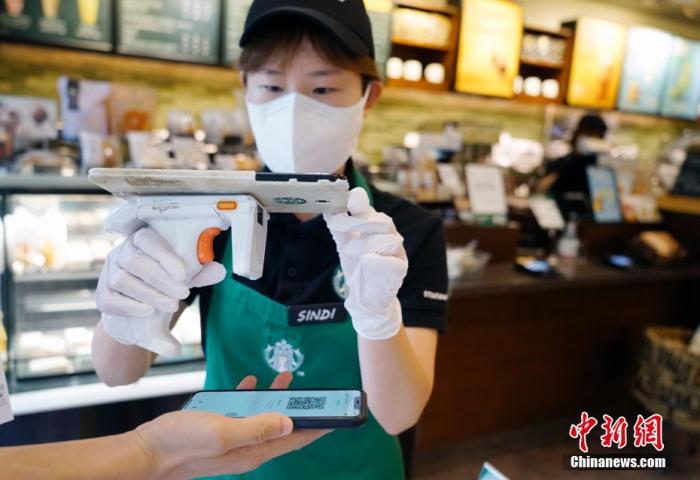China News Service, December 10th. According to Korea Broadcasting International (KBS), South Korea’s Central Anti-epidemic Countermeasures Headquarters reported on the 10th local time that as of 0:00 that day, South Korea had newly confirmed 682 new cases of new crowns compared to 0:00 the day before. With 646 confirmed cases, the epidemic situation in the capital area is particularly severe.
To this end, the South Korean government intends to set up about 150 temporary detection points in the metropolitan area to quickly identify asymptomatic infections.
According to the report, among the newly confirmed cases, 489 in the metropolitan area, 251 in Seoul, 201 in Gyeonggi-do, and 37 in Incheon.
In Seoul, cases related to large restaurants in Jongno district, traditional markets in Jung-gu, and sauna rooms in Dongjak district continued to increase, with more than 250 new cases in a single day.
The picture shows a chain coffee shop in Jongno District, Seoul, South Korea. The staff scan the code to register the entry and exit.
Photo by China News Agency reporter Zeng Nai
The South Korean epidemic prevention authority stated that there were more than 3,000 new cases in the past week, of which the epidemic situation in the capital area is the most severe, and all forces have been mobilized to curb the spread of the epidemic in the capital area.
However, with the rapid increase in confirmed cases, the response capacity of the epidemic prevention and medical system is approaching its limit, and it is now in a very dangerous situation.
According to the analysis of the epidemic prevention authority, among young and middle-aged people who are active, the number of asymptomatic and incubation period infections has increased significantly, which is the main reason for the continued spread of the epidemic in the capital area recently.
In view of this, the government decided to set up more than 150 temporary detection points in the capital area to quickly identify asymptomatic infections.
The South Korean government also stated that before vaccination, the best way to prevent the epidemic is to thoroughly observe the epidemic prevention rules such as wearing masks, maintaining social distancing, and being tested, and called on the public to postpone year-end gatherings and travel, and cancel unnecessary gatherings.

